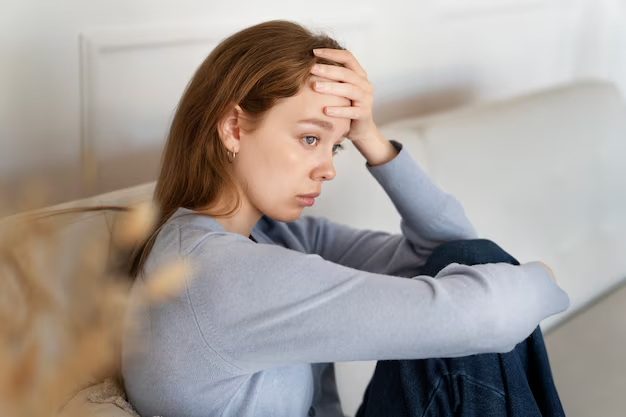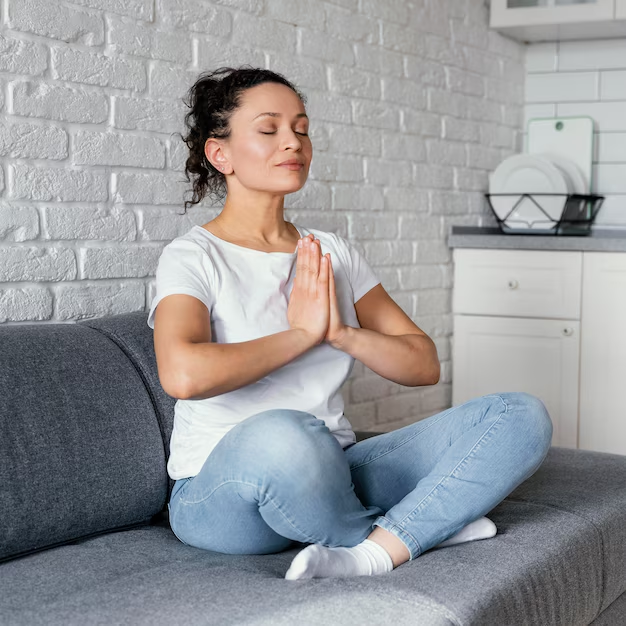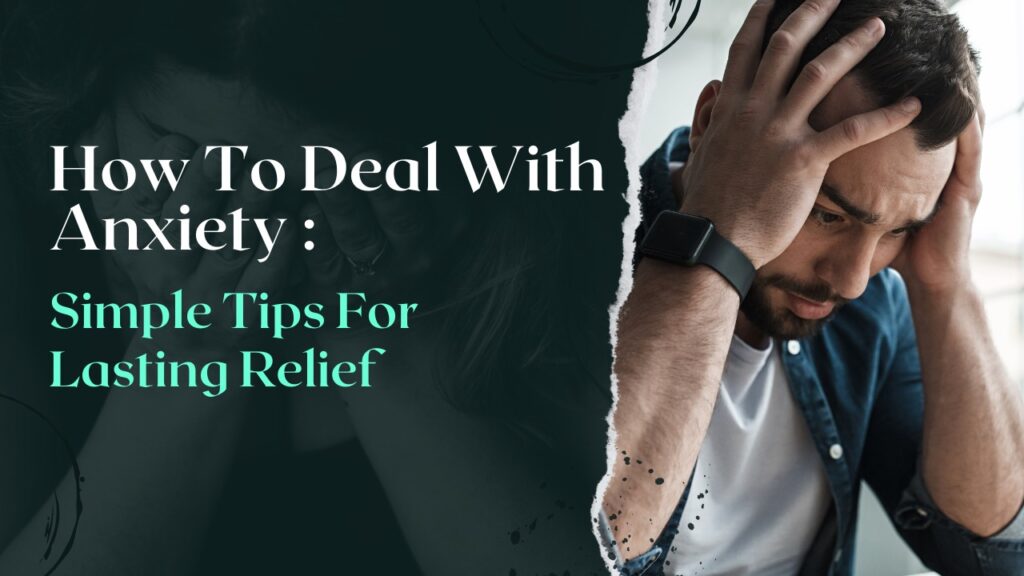Anxiety is one of the most widespread mental health challenges people face today. It can range from a general sense of nervousness to intense fear that disrupts daily life. Everyone experiences anxiety differently, and it can show up in various forms such as constant worry, social fear, or sudden panic attacks.
In our fast-moving and digitally connected world, stress levels are often high, making anxiety even more common. The pressure to keep up with work, relationships, and social expectations can lead to emotional exhaustion. For many, anxiety becomes a regular part of life, affecting both mental and physical well-being.
The good news is that you’re not alone in this struggle. Millions of people are actively looking for ways to manage their anxiety. With the right support and tools — such as therapy, lifestyle changes, mindfulness, or relaxation techniques — it’s possible to feel more in control and find relief. Hope and help are within reach.
In this article, we’ll explore what anxiety is, what causes it, and, most importantly, practical, research-backed ways to manage it. Whether you’re looking for self-help strategies or considering professional support, this guide will equip you with tools to take back control of your mind and restore a sense of calm and clarity.
What is Anxiety ?

Anxiety is a natural emotional response that occurs when your brain senses a potential threat. It serves as a built-in alarm system, alerting you to danger and helping you prepare to respond. This reaction, often referred to as the “fight or flight” response, is an important part of how humans have survived over time.
In small amounts, anxiety can actually be useful. It can motivate you to complete a task on time, prepare thoroughly for an exam, or stay alert in uncertain or risky situations. This kind of anxiety is short-term and typically fades once the challenge or danger has passed.
However, when anxiety becomes constant or overwhelming, it can interfere with everyday life. Persistent anxiety may affect sleep, concentration, relationships, and overall well-being. It’s important to recognize when normal stress turns into something more serious.
Understanding how to deal with anxiety is key to regaining control. Techniques like deep breathing, physical activity, mindfulness, or talking to a mental health professional can all help. With the right tools and support, managing anxiety becomes possible.
However, when anxiety becomes chronic or disproportionate to the situation, it can interfere with your life. Common forms of anxiety include:
Generalized Anxiety Disorder (GAD) – Persistent and excessive worry about everyday things.
Panic Disorder – Sudden, intense episodes of fear and physical symptoms.
Social Anxiety Disorder – Fear of being judged or embarrassed in social situations.
Phobias – Intense fear of specific objects or situations.
Obsessive-Compulsive Disorder (OCD) – Intrusive thoughts and compulsive behaviors.
Post-Traumatic Stress Disorder (PTSD) – Anxiety triggered by past trauma.
Symptoms of Anxiety
Recognizing anxiety is the first step toward managing it. Symptoms can be physical, emotional, and behavioral:
| Category | Symptoms |
|---|---|
| Physical Symptoms | – Rapid heartbeat – Sweating – Muscle tension – Fatigue – Dizziness – Insomnia – Stomach upset or nausea |
| Emotional Symptoms | – Constant worry – Irritability – Feeling overwhelmed – Racing thoughts – Restlessness |
| Behavioral Symptoms | – Avoidance of triggers – Difficulty concentrating – Compulsive behaviors – Withdrawal from social interactions |
Top Tips for How to Deal with Anxiety
Let’s delve into practical strategies that have been shown to help individuals manage anxiety effectively.
Practice Deep Breathing

One of the most effective yet simple techniques for managing anxiety is deep breathing. When you feel anxious, your breathing often becomes fast and shallow. This can make physical symptoms like a racing heart, dizziness, or chest tightness feel even worse.
Deep breathing helps by slowing your breath and calming your nervous system. It activates the parasympathetic nervous system — the part of the body responsible for relaxation. As a result, your heart rate slows down, your muscles relax, and your mind becomes clearer and more focused.
Learning how to deal with anxiety often starts with small steps, and deep breathing is a great first one. You can practice it anywhere — at home, work, or in public. Just a few minutes of slow, deep breaths can help reduce tension and bring a sense of calm. Over time, this simple habit can make a big difference in how you respond to stress.
Try This: Box Breathing
Inhale for 4 seconds
Hold for 4 seconds
Exhale for 4 seconds
Hold for 4 seconds
Repeat this cycle for several minutes.
Challenge Negative Thoughts
Anxiety often comes from unhelpful thinking patterns. People may overestimate danger, expect the worst outcomes, or think in extremes — such as believing everything will go wrong or nothing will ever improve. These thoughts can make anxiety feel stronger and harder to manage.
One way to learn how to deal with anxiety is by understanding and challenging these negative thoughts. Cognitive Behavioral Therapy (CBT) is a proven method that helps people recognize these patterns and replace them with more realistic and balanced thinking.
CBT teaches simple, practical tools to question your fears and reduce anxious responses. For example, you might ask yourself if there’s real evidence for your fear or if you’re jumping to conclusions. Over time, this process helps retrain your brain to react more calmly. By changing the way you think, you can change the way you feel — making CBT a powerful tool in learning how to deal with anxiety.
Cognitive Reframing Exercise
Ask yourself:
What’s the evidence for this thought?
Is there an alternative explanation?
What would I say to a friend who had this thought?
Establish a Daily Routine

Having a daily routine can be a powerful way to reduce anxiety. Structure gives your brain a sense of order and predictability, which helps calm anxious thoughts. When you know what to expect, it’s easier to stay focused and grounded throughout the day.
In contrast, when your days are unstructured or chaotic, your mind may struggle to stay calm. Without a clear plan, small problems can feel bigger, and your brain may start to spiral into worry. This lack of control can make anxiety symptoms worse.
One important step in learning how to deal with anxiety is building a consistent daily schedule. This can include regular sleep, meals, work, exercise, and relaxation time. Even simple habits like planning your morning or setting goals for the day can make a big difference. Routine creates stability, which helps you feel more secure and better prepared to handle life’s challenges.
Tips
Set regular times for waking, meals, and sleep
Plan breaks and self-care
Limit multitasking — focus on one task at a time
Exercise Regularly
Physical activity is one of the most effective natural ways to ease anxiety. When you move your body, it helps release endorphins — chemicals in the brain that improve mood and promote a sense of well-being. This natural boost can help you feel more balanced and in control.
Exercise also reduces muscle tension, which often builds up during times of stress or worry. By relaxing the body, it sends a message to the brain that it’s safe to calm down. Regular physical activity can also lower levels of cortisol, the hormone that rises when you’re under stress.
If you’re wondering how to deal with anxiety, adding movement to your day can be a helpful step. It doesn’t have to be intense — even a walk, yoga, or stretching can make a difference. Over time, consistent exercise can improve both your mental and physical health, helping you feel more grounded and less anxious.
Recommended
30 minutes of moderate aerobic exercise (like walking, swimming, or cycling) 4–5 days a week.
Yoga and tai chi also promote relaxation and mindfulness.
Limit Caffeine and Alcohol

What you drink can have a big effect on your anxiety levels. Caffeine, found in coffee, tea, and energy drinks, can increase symptoms like a racing heart, restlessness, or shakiness. These effects are similar to what you feel during anxiety, which can make the situation worse.
Alcohol might feel like it helps at first by relaxing your body or calming your nerves. However, this effect is short-lived. Over time, alcohol can disrupt your sleep and throw off your brain’s natural balance, making anxiety worse the next day or in the long run.
Understanding how to deal with anxiety means being mindful of what you consume. Cutting back on caffeine and limiting alcohol can help your body stay calm and balanced. Replacing these with water, herbal tea, or other calming drinks can support your mental health and help reduce anxiety over time. Small changes in your habits can lead to big improvements.
Limit caffeine to 1 cup per day or eliminate it entirely
Avoid using alcohol as a coping mechanism
Practice Mindfulness and Meditation
Mindfulness is the practice of focusing on the present moment with a calm and open attitude. Instead of getting caught up in past regrets or future worries, mindfulness helps you notice what’s happening right now — in your body, thoughts, and surroundings — without judgment or fear.
Meditation is a powerful way to build mindfulness. By setting aside a few minutes each day to sit quietly and observe your breath or thoughts, you train your brain to become more aware and less reactive. Over time, this helps reduce the grip of anxious thinking and brings a sense of peace and clarity.
If you’re learning how to deal with anxiety, mindfulness and meditation can be valuable tools. They help you slow down, create space between thoughts, and respond to stress with calm instead of panic. With regular practice, mindfulness builds emotional strength and helps you feel more grounded and in control.
Try
Guided meditations via apps (Headspace, Calm, Insight Timer)
Mindful walking or eating
Body scan meditations
Get Enough Quality Sleep

Sleep and anxiety have a strong connection. When you don’t get enough rest, your body and mind become more sensitive to stress. This can lead to increased worry, tension, and difficulty handling everyday situations, making anxiety feel more intense and harder to manage.
At the same time, anxiety often makes it difficult to fall or stay asleep. Racing thoughts, restlessness, or physical symptoms like a fast heartbeat can keep you awake at night. This creates a cycle where poor sleep makes anxiety worse, and anxiety keeps you from sleeping.
Learning how to deal with anxiety includes building healthy sleep habits. Going to bed and waking up at the same time each day, limiting screen time before bed, and creating a calm bedtime routine can all help improve sleep. When your body is well-rested, your mind becomes stronger and more capable of handling stress and anxious thoughts during the day.
Tips for Better Sleep
Keep a consistent sleep schedule
Avoid screens before bed
Create a calming bedtime routine (reading, stretching, warm bath)
Talk to Someone You Trust
Anxiety often feels heavier when you’re alone. It can grow stronger in isolation, making your thoughts seem more intense and harder to manage. Keeping your feelings inside may make anxiety feel like a burden you have to carry by yourself.
Talking to someone you trust — whether it’s a friend, family member, or therapist — can bring relief. Sharing your thoughts out loud helps you process what you’re going through and feel less overwhelmed. Others can also offer support, understanding, or a different point of view that can ease your mind.
One of the key steps in learning how to deal with anxiety is reaching out for connection. You don’t have to face anxious feelings alone. Regular conversations and emotional support can help reduce stress and remind you that you’re not alone in what you’re feeling. Simple, honest communication can go a long way in helping you feel supported and more at peace.
Benefits
Emotional support
Different viewpoints
Encouragement and accountability
Journaling

Writing down your thoughts and feelings is a powerful way to understand and manage anxiety. When emotions feel overwhelming, putting them on paper can help you slow down and make sense of what you’re experiencing. It gives your thoughts a place to go instead of staying bottled up inside.
Journaling helps you notice patterns and identify what triggers your anxiety. Over time, you may begin to see connections between certain situations and your emotional responses. This awareness allows you to take action and avoid or better prepare for those triggers in the future.
If you’re looking for ways on how to deal with anxiety, journaling is a simple and helpful habit to start. You don’t need to write perfectly — just be honest. Even a few minutes a day can give you clarity, calm your mind, and help you feel more in control. Writing can become a trusted tool in your journey toward emotional balance.
Journal Prompts
What am I feeling anxious about today?
What thoughts are contributing to this feeling?
What’s something positive that happened today?
Identify Triggers
Understanding what causes your anxiety is an important step toward managing it. Triggers can be different for everyone — such as stressful work situations, social events, or certain thoughts and memories. When you recognize these triggers, you can start to take control instead of being caught off guard.
Being aware of your triggers helps you prepare in advance. For example, if public speaking makes you anxious, practicing ahead of time or using calming techniques can help reduce stress. If certain environments or people increase your anxiety, you might choose to limit your exposure or plan ways to cope while you’re there.
Learning how to deal with anxiety means paying attention to what affects your mood and finding smart ways to respond. Keeping track of triggers in a journal or talking them through with someone you trust can make them easier to handle. With time and awareness, you can feel more prepared and less anxious.
Examples
Social events
Deadlines
Certain people or places
Financial stress
Keep a diary of your anxiety episodes to find patterns.
Seek Professional Help When Needed

Sometimes, trying to manage anxiety on your own isn’t enough — and that’s completely okay. While self-help strategies like deep breathing, exercise, and journaling can be useful, they may not always provide the relief you need. When anxiety begins to affect your daily life, it may be time to seek extra support.
Talking to a mental health professional can be a powerful step. Therapists can help you explore the root of your anxiety and teach you tools to manage it more effectively. In some cases, medication may also be helpful in balancing brain chemicals and reducing symptoms.
Understanding how to deal with anxiety means knowing when to ask for help. Reaching out for professional support isn’t a sign of weakness — it’s a strong, positive move toward healing. With the right care, you can gain control over anxiety and feel more confident in your ability to face life’s challenges.
Options
Cognitive Behavioral Therapy (CBT) – One of the most effective treatments for anxiety
Medication – SSRIs, SNRIs, or short-term anxiolytics prescribed by a psychiatrist
Support Groups – Connecting with others who understand what you’re going through
Long-Term Anxiety Management
Anxiety management is not a one-time fix — it’s a lifelong process. But with consistent effort and the right support, you can reduce its grip on your life. Consider combining various strategies for a holistic approach:
Lifestyle (sleep, diet, exercise)
Emotional (journaling, therapy)
Mental (cognitive reframing, mindfulness)
Social (connection, boundaries)
Conclusion

Knowing how to deal with anxiety is a vital step toward living a balanced and peaceful life. Anxiety can feel overwhelming, but with effective strategies, it is possible to reduce its hold on your mind and body. Whether it’s through deep breathing, mindfulness, exercise, or seeking support, adopting these tools helps you manage anxiety’s symptoms and regain control.
Establishing routines, challenging negative thoughts, and prioritizing self-care all play a key role in calming anxious feelings. Remember, everyone’s experience with anxiety is unique, so finding the right combination of techniques is essential.
Importantly, don’t hesitate to reach out for professional help when needed. By learning how to deal with anxiety proactively and compassionately, you empower yourself to navigate life’s challenges with greater confidence and calm. Your journey to tranquility begins with a single step.
FAQs
- What are some quick ways to calm anxiety ?
Deep breathing, going for a walk, drinking water, or grounding exercises can help reduce anxiety quickly. - How can I tell if my anxiety is serious ?
If anxiety interferes with daily life, sleep, or relationships, or if it feels constant and overwhelming, it may be time to seek professional help. - Can anxiety go away on its own ?
Mild anxiety may pass with rest or relaxation, but ongoing anxiety often needs active steps like therapy, self-care, or lifestyle changes. - Is exercise really helpful for anxiety ?
Yes, regular physical activity helps release calming chemicals in the brain and reduces tension, making it a proven way to ease anxiety. - When should I consider therapy or medication ?
If self-help strategies don’t improve your symptoms or if anxiety is affecting your quality of life, professional treatment can offer real relief.
